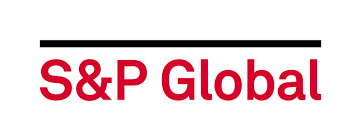Momentum softens : On S&P Global’s survey
Food inflation threatens to undermine efforts to ensure price-stability
The latest Purchasing Managers’ Index (PMI) for India’s manufacturing sector and the Services Business Activity Index for the economy’s broader services sector from S&P Global, posit a softening in momentum in economic activity. Its survey of about 400 manufacturers shows that production growth at major private sector factories eased marginally last month, with the June PMI reading dipping to 57.8, from 58.7 in May. On the services front, the index signalled the expansion in output decelerating to a three-month low, dragged down by activity in the transport, information and communication sectors registering a sequential slowdown. The softer readings of the manufacturing and services indices for June can be attributed to a large extent to their multi-year peaks in May and April, respectively, especially when the underlying constituents of the index are viewed separately. While manufacturing PMI surged to a 31-month high in May, the index for services had in April registered its highest seasonally adjusted figure in almost 13 years. June’s data show that new orders at factories, which constitute about 30% of the manufacturing PMI’s weight, grew at the strongest pace in 28 months, while demand and higher labour costs spurred charge inflation — the rate of increase in prices of manufacturers’ finished goods — to a 13-month high. Similarly, service providers noted a quicker expansion in intake of new business, pointing to demand remaining robust, and buoying firms’ confidence in growth prospects to the highest level in 2023.
On the face of it, S&P Global’s survey findings ought to reassure policymakers that the Reserve Bank of India’s inflation-battling interest rate increases till the end of the last fiscal have still not sapped domestic demand for manufactured goods and services. However, the PMI survey panels do not include MSMEs, which collectively are estimated to contribute more than a third to the gross value added generated by the manufacturing sector as a whole. The absence of data on the MSME segment, which is a key bulwark of manufacturing employment, means that estimating the overall strength of job creation in the formal economy relying largely on PMI as an indicator may be risky. While S&P Global’s surveys point to private sector employment strengthening further, with manufacturers recording a stronger expansion in jobs than service providers, CMIE data point to the June unemployment rate having spiked to 8.5%, from 7.7% in May. Policymakers will also need to keep a watch on the upward trend in output prices at manufacturers and service providers, given that the resurgence in food inflation threatens to undermine the RBI’s efforts to anchor inflation expectations and ensure growth-supportive price stability.
